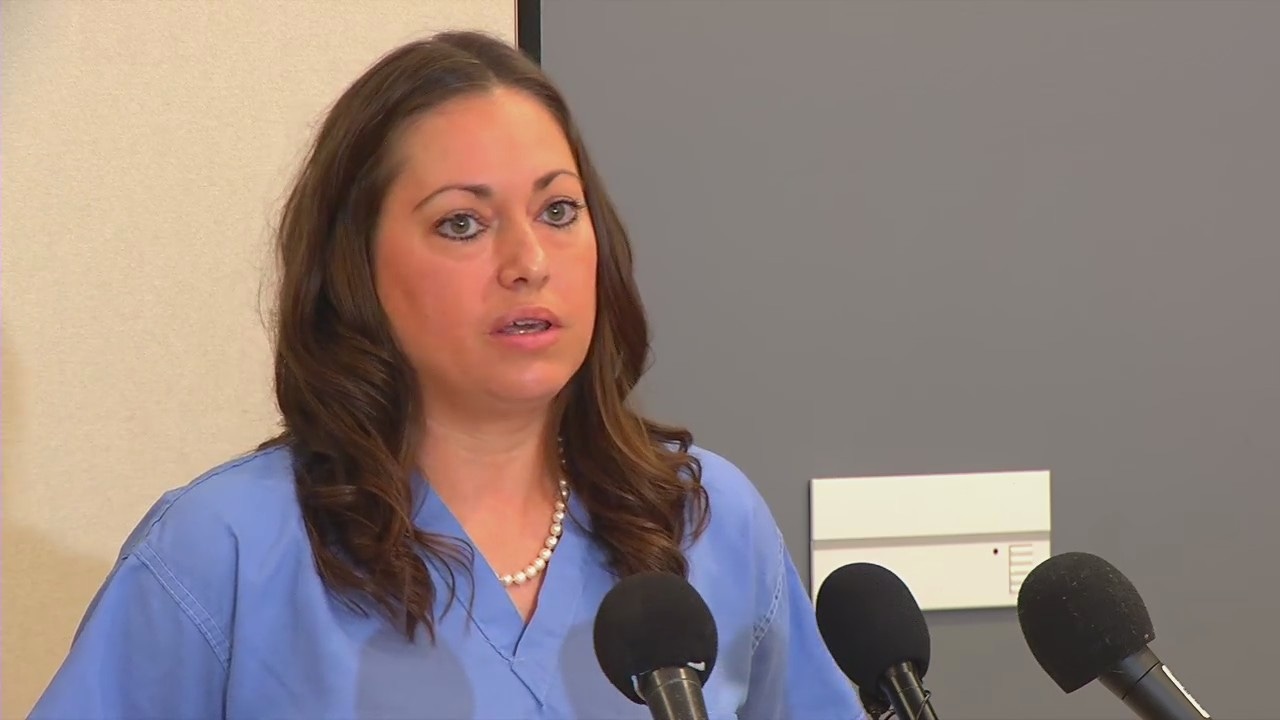Health officials offer advice, urge precautions during holidays as viral illnesses rise
[anvplayer video=”5149199″ station=”998122″]
As many Minnesotans prepare to gather with family and friends during the holiday season, health officials are asking the public to take measures to keep everyone healthy.
Monday morning, Minnesota physicians, along with hospital and clinic system officials, highlighted the rise of respiratory illnesses in the state and the strain it’s putting on the health care system.
RELATED: COVID precautions much different in Minnesota than a year ago
While cases of COVID-19 much lower than last year, the state has been impacted earlier than usual by respiratory syncytial virus (RSV), influenza and other seasonal illnesses.
Health officials say the seasonal illnesses are peaking sooner, faster and strong than usual, and that has led to an intense strain on emergency departments.

Dr. Ashley Strobel, an emergency and pediatric physician at Hennepin Healthcare, speaks during a press conference on Nov. 21, 2022. (KSTP-TV)
RELATED: Health officials ask Minnesotans to take precautions over Thanksgiving as flu cases surge
“Minnesota’s hospitals and health systems are working together to coordinate the best care for Minnesotans when they need us” Rahul Koranne, the president and CEO of the Minnesota Hospital Association, said. “We plead with patients and families to be patient with their hospital and health system care teams who are doing their best to navigate these challenges. Providing high-quality care for every patient is their utmost priority.”
Doctors noted it’s been a couple of years since we’ve had to deal with some of these viruses and, especially when young kids get sick, it can be scary for parents. However, many symptoms are normal and don’t require emergency care.
“We want to help everyone out, we want to have space to help everyone out and please have mercy on us, we are working very hard and doing our absolute best, we are parents just like you, we are Minnesotans just like you and we want to take care of you,” Dr. Ashley Strobel, an emergency and pediatric physician at Hennepin Healthcare, said.
Dr. Andrea Singh, a pediatrician at Park Nicollet, noted that a fever doesn’t need immediate attention if it’s under 103 degrees as long as it hasn’t persisted for four or five days. She added that RSV is similar to a common cold in adults. In kids, RSV often leads to thicker mucus and noisy breathing, which is normal and doesn’t require immediate attention unless it leads to distress, difficulty in breathing, dehydration or a change in color or energy level.
Staying at home, getting rest and taking over-the-counter medication is often the best way to treat those illnesses, Dr. Singh added.
Doctors are also urging Minnesotans to take the following precautions to help limit the spread of seasonal illnesses and ease that strain on emergency departments:
- Stay home if you or a family member is sick.
- Wash hands often.
- Cover coughs and sneezes with a tissue or sleeve instead of hands.
- Clean frequently touched surfaces, like doorknobs and mobile devices.
- Avoid close contact with sick people.
- Wear a mask when necessary.
- Stay up to date on flu shots and COVID-19 boosters.
- Consider urgent care, a primary health provider or telehealth options for non-emergency care.
- Stay up to date with preventative care so your primary care team can help with health issues.
However, in an emergency, it’s still important to call 911 if immediate attention is needed. Health officials note RSV is particularly dangerous for kids and may require emergency medical help if they experience severe symptoms.
If you are using the KSTP app, you can watch the report here.